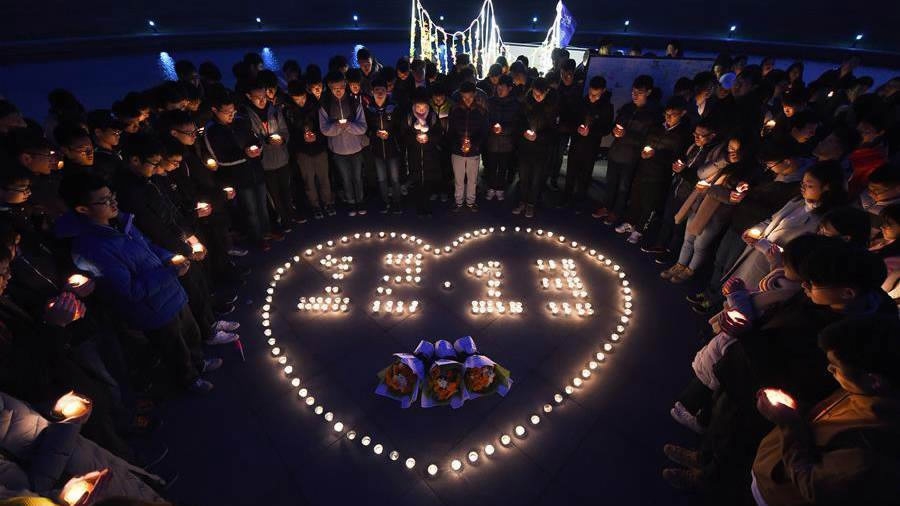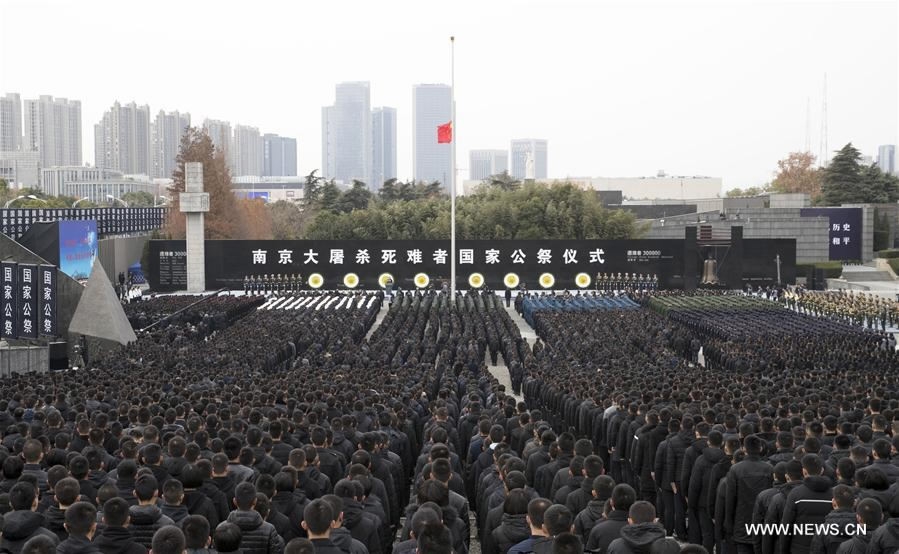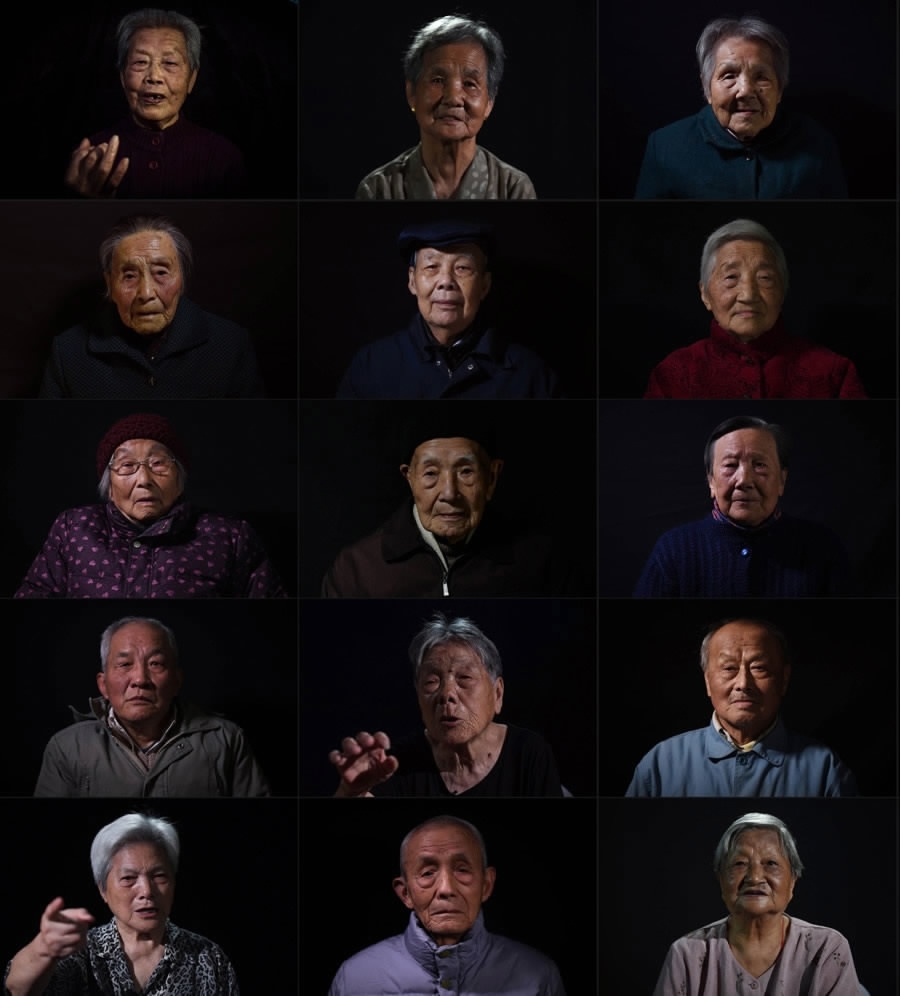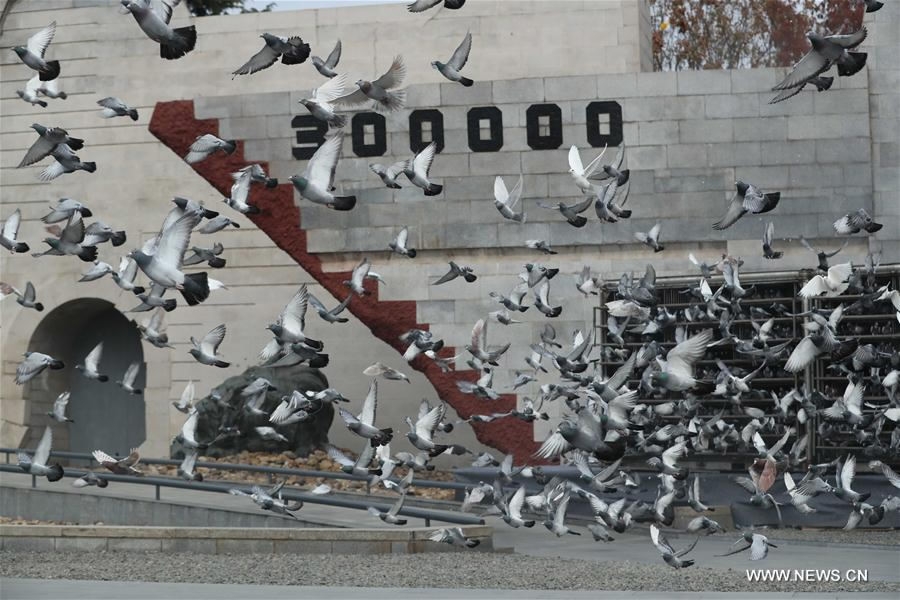
Opinions
20:50, 13-Dec-2017
Opinion: To forgive, but not forget
Guest commentary by Dr. Summer

On December 13, 1937, Japanese invaders occupied Nanjing, the then-capital of China during World War Two, and mercilessly launched a campaign of destruction, pillage, rape and slaughter in the city. More than 300,000 Chinese were killed by the Japanese troops in the subsequent six weeks. In February 2014, China's top legislature designated December 13 as the National Memorial Day for Nanjing Massacre Victims.
This year marks the 80th anniversary of the Nanjing Massacre and a state memorial ceremony was held for the occasion in Nanjing, east China’s Jiangsu Province on Wednesday. While mourning the victims, people attending the ceremony prayed for world justice and peace so that the victims would not have died in vain.

Photo taken on Dec. 13, 2017 shows the scene of state memorial ceremony for China's National Memorial Day for Nanjing Massacre Victims at the memorial hall for the massacre victims in Nanjing, east China's Jiangsu Province, Dec. 13, 2017. /Xinhua Photo
Photo taken on Dec. 13, 2017 shows the scene of state memorial ceremony for China's National Memorial Day for Nanjing Massacre Victims at the memorial hall for the massacre victims in Nanjing, east China's Jiangsu Province, Dec. 13, 2017. /Xinhua Photo
In neighboring Japan, however, there are still some people who want to deny history by ignoring the facts. Some are doubtful of the exact number of people killed, suggesting that 300,000 is an inflated number and maintaining that the death toll ranged from 2,000 to 50,000. Some challenge the use of the term “massacre” to describe what they claim as casualties of fighting between Japanese and Chinese troops. There are quite a few who even blame China for “inciting hatred” against Japan by holding memorial services for the victims.
My question for these people is: How can you make Japan a normal country when you turn a blind eye to history by covering facts?
As a matter of fact, the word “massacre” was first used by George Ashmore Fitch, when he gave a firsthand account of the killings by the Japanese soldiers at a gathering in Guangzhou on March 1, 1938. The speech was published by the “World Outlook” magazine on April 5 the same year. On May 16, 1943, the United Press International (UPI) filed a news report from Boston, which compared the Nanjing massacre to the Holocaust, calling for a tough punishment to those held responsible.

Survivors of the Nanjing Massacre. /Xinhua Photo
Survivors of the Nanjing Massacre. /Xinhua Photo
As it is extremely difficult to pin down the exact number of people killed during the massacre that occurred in a war-torn China at the time, the Chinese government has to make reference to the documents of the trials of Japanese war criminals after World War Two. According to records of the Far East Military Court set up in Tokyo on January 19, 1946, during the first six weeks after the occupation of Nanjing, the Japanese troops killed at least 200,000 Chinese civilians and captured soldiers. The number does not include the bodies burned or discharged into the Yangtze River by the Japanese troops. The estimated number of the latter was around 150,000. Meanwhile the number of victims recorded by the Nanjing Military Court for the War-criminals set up on February 15, 1946, stood at around 340,000.
The above-quoted facts and numbers are from historical records by established media organizations and international institutions. They have been recognized by the international community as records of history. A handful of people with evil intentions in Japan can ignore them, but cannot deny them.

Photo taken on Dec. 13, 2017 shows pigeons flying during the state memorial ceremony for China's National Memorial Day for Nanjing Massacre Victims at the memorial hall for the massacre victims in Nanjing, east China's Jiangsu Province. /Xinhua Photo
Photo taken on Dec. 13, 2017 shows pigeons flying during the state memorial ceremony for China's National Memorial Day for Nanjing Massacre Victims at the memorial hall for the massacre victims in Nanjing, east China's Jiangsu Province. /Xinhua Photo
My advice for these people is: only when we remember the bitter lessons of the war and massacre, can we better cherish the peace we now live in. Only when we forgive those who have truly learned a lesson from history, can we move forward to a better future. Yet, those who try to deny the massacre will not be forgiven but will remain notorious in history.
(With a doctoral degree in communications from the China University of Communications, the author has been working in the field of international journalism for 30 years. The article reflects the author's opinion, and not necessarily the views of CGTN. )

SITEMAP
Copyright © 2018 CGTN. Beijing ICP prepared NO.16065310-3
Copyright © 2018 CGTN. Beijing ICP prepared NO.16065310-3